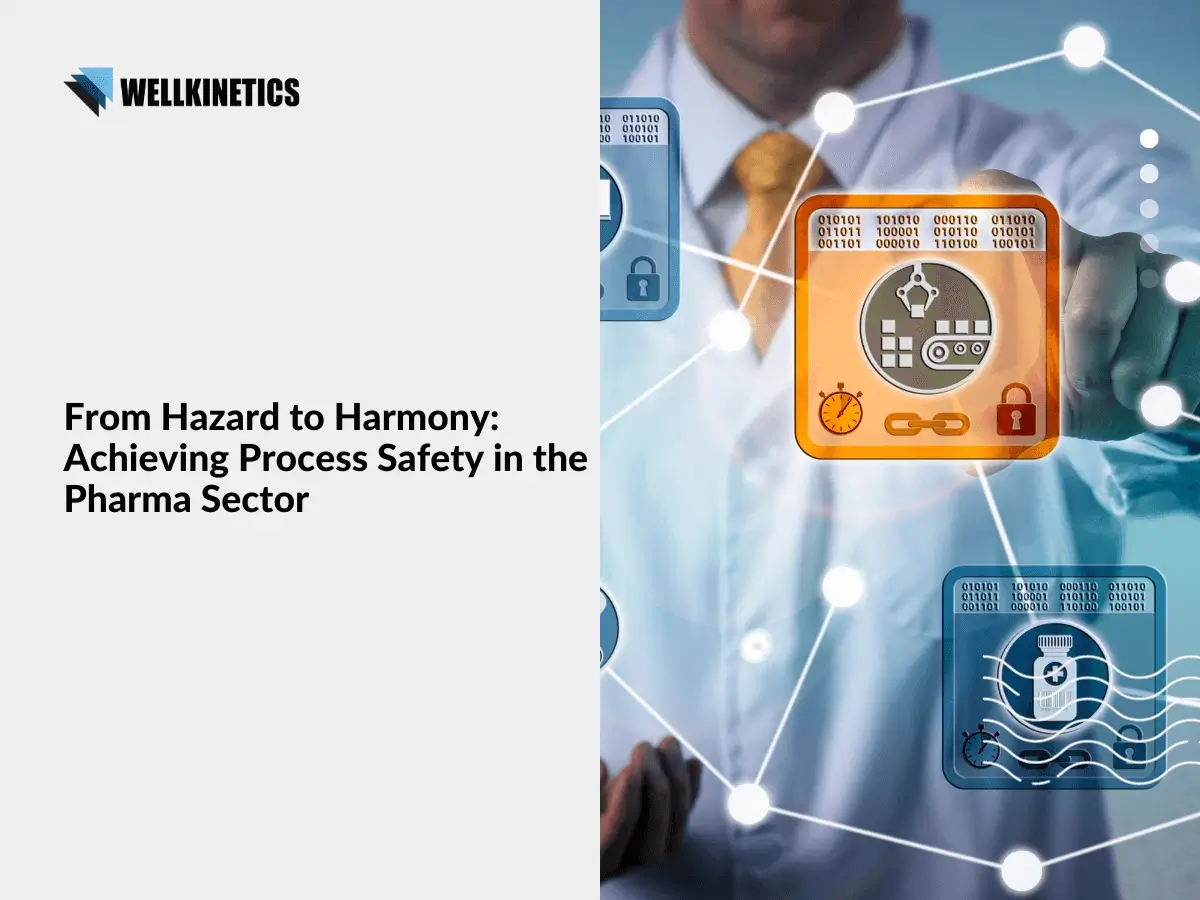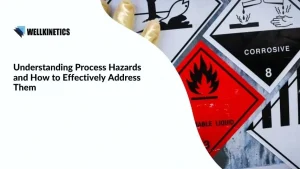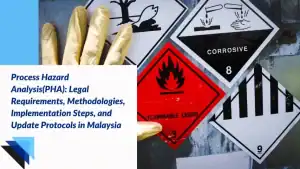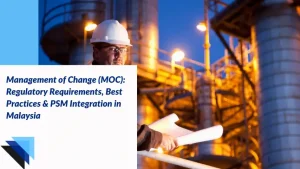Imagine a scenario where a pharmaceutical manufacturing facility loses control of a hazardous chemical during production, leading to a major safety incident. Lives are endangered, the environment is compromised, and the reputation of the company is irreparably tarnished. This is the harsh reality that can occur when process safety is not prioritized in the pharmaceutical industry.
In the fast-paced world of pharmaceutical manufacturing, the need for process safety cannot be underestimated. It is the key to ensuring occupational safety, managing risks, and maintaining a robust safety culture.
In this in-depth article, we will dive into the critical importance of process safety in the pharmaceutical sector. From understanding regulatory requirements to fostering a culture of safety, we will provide valuable insights and practical strategies to help pharmaceutical companies achieve process safety harmony.
Introduction to Process Safety in the Pharmaceutical Industry
The pharmaceutical industry is responsible for the development and production of life-saving medications. However, the manufacturing processes involved in pharmaceutical production can also pose various hazards to the workers involved. This is why ensuring process safety is of utmost importance in this industry.
Process safety focuses on identifying, assessing, and mitigating risks associated with the manufacturing processes to prevent accidents, injuries, and potential harm.
Process safety in the pharmaceutical industry not only safeguards the workers but also ensures the production of high-quality and safe medications. By implementing robust process safety measures, pharmaceutical companies can minimize the occurrence of incidents, protect the integrity of the manufacturing processes, and maintain the reputation of their products.
Challenges Faced by Pharmaceutical Companies
Ensuring process safety in the pharmaceutical industry comes with its own set of challenges and hazards. Pharmaceutical companies must navigate various risks and implement robust safety measures to protect their workers. Here are some specific challenges they face:
1. Handling Hazardous Materials
Pharmaceutical manufacturing often involves working with hazardous chemicals and substances, which can pose significant risks if not handled properly. Companies must establish strict protocols for the storage, handling, and disposal of these substances to prevent accidents and exposure.
RELATED: The Importance of Process Safety in Handling Hazardous Substances
2. Risks of Fire and Explosions
Certain chemical reactions and processes in pharmaceutical manufacturing can be highly flammable or explosive. Companies must diligently assess and mitigate such risks by implementing appropriate engineering controls, ensuring proper ventilation, and conducting regular inspections.
3. Accidental Contamination
Pharmaceutical companies need to maintain stringent cleanliness standards to prevent accidental contamination of products. Contamination can result in compromised safety and efficacy, leading to severe consequences for both patients and workers.
4. Compliance with Regulatory Standards
The pharmaceutical industry is subject to strict regulations and standards regarding safety and quality. Companies must stay up to date with these requirements and ensure compliance to prevent regulatory penalties and uphold public trust.
5. Training and Education
The complex nature of pharmaceutical manufacturing requires a highly skilled workforce. Companies need to invest in comprehensive training programs to educate employees about safety protocols, handling hazardous materials, and responding to emergencies effectively.
6. Managing Change and Innovation
As new processes, technologies, and products are introduced in the pharmaceutical industry, companies must carefully manage change while maintaining a strong safety culture. Implementing new processes without a thorough understanding of associated risks can lead to unforeseen hazards.
Addressing these challenges requires a proactive approach, continuous improvement, and a company-wide commitment to prioritizing safety. By tackling these issues head-on, pharmaceutical companies can create a safer work environment for their employees and contribute to overall process safety in the industry.
Building a Robust Process Safety Culture
Developing a strong process safety culture is essential in the pharmaceutical sector to ensure safety and mitigate risks. By fostering a culture that values safety at every level, pharmaceutical companies can establish effective measures to prevent accidents and protect the well-being of their employees. Here are some key insights and strategies for building a robust process safety culture in the pharmaceutical industry:
1. Leadership Commitment:
– Leaders should demonstrate a proactive commitment to process safety by allocating resources, setting clear expectations, and championing safety initiatives.
– Encourage open communication channels between management and employees, fostering a culture of transparency and trust.
2. Training and Competence:
– Provide comprehensive training programs to equip employees with the necessary knowledge and skills to identify and mitigate potential hazards.
– Regularly assess employees’ competencies and provide ongoing training and development opportunities to ensure their skills stay up-to-date.
3. Process Documentation and Standard Operating Procedures:
– Document all processes and establish clear standard operating procedures for handling hazardous materials and equipment.
– Regularly review and update procedures to reflect best practices and new safety guidelines.
4. Risk Assessment and Management:
– Conduct thorough risk assessments to identify potential hazards and develop appropriate control measures.
– Establish a system for reporting near misses, accidents, and incidents, and ensure lessons learned are shared and implemented across the organization.
5. Employee Engagement and Empowerment:
– Involve employees in the decision-making process, seeking their input on safety protocols and encouraging them to take ownership of their safety and that of their colleagues.
– Recognize and reward individuals and teams who exemplify outstanding commitment to process safety.
By integrating these strategies into their operations, pharmaceutical companies can build a robust process safety culture that prioritizes employee well-being and mitigates risks. Creating a safe working environment is not only crucial for protecting personnel but also for maintaining regulatory compliance and fostering a positive reputation in the industry.
Equipment Selection and Hazardous Areas
Selecting the right equipment and designating hazardous areas are crucial steps in ensuring process safety in the pharmaceutical industry. By choosing equipment that is suitable for the specific processes and materials involved, companies can minimize the risk of accidents and protect the well-being of workers. Additionally, properly designating hazardous areas helps to prevent unauthorized access and provides clear guidance on safety precautions. Robust safety protocols should be established for equipment installation, operation, and maintenance. Regular inspections and audits should also be conducted to ensure compliance with safety standards. Prioritizing equipment selection and defining hazardous areas are key elements in building a strong process safety culture in the pharmaceutical sector.
Mitigating Risks and Process Hazard Analysis
Process hazard analysis is a critical component of ensuring occupational safety in the pharmaceutical industry. By conducting thorough analyses, risks associated with pharmaceutical manufacturing processes can be identified and appropriate mitigation measures can be implemented.
One key methodology for process hazard analysis is the Hazard and Operability Study (HAZOP), which systematically examines potential deviations from normal operating conditions and identifies potential hazards. Additionally, Failure Mode and Effects Analysis (FMEA) can be employed to assess potential failures and their consequences.
By integrating process hazard analysis into the manufacturing process, pharmaceutical companies can proactively identify and mitigate risks, ensuring the safety of workers and the community. It helps in creating a robust process safety culture that prioritizes the well-being of all stakeholders involved.
Scale-Up Process and Changes
When it comes to scaling up processes in the pharmaceutical industry, ensuring process safety becomes even more crucial. The following considerations and challenges must be addressed to maintain occupational safety during the scale-up process:
Equipment and Infrastructure:
Selecting the appropriate equipment and ensuring that the infrastructure can handle the increased scale is essential. This includes evaluating factors such as pressure, temperature, and compatibility with hazardous materials.
Process Validation:
Validating the scaled-up process is important to ensure that it continues to meet safety requirements. This may involve conducting additional testing and analysis to identify any potential safety risks that could arise from the changes.
Training and Awareness:
Providing proper training and raising awareness among employees about the changes in the scaled-up process is vital for maintaining a strong process safety culture. This ensures everyone is equipped with the knowledge and skills needed to mitigate risks effectively.
Risk Assessment:
Conducting a thorough risk assessment for the scaled-up process is crucial. This involves identifying potential hazards, evaluating the severity of risks, and implementing necessary control measures to minimize the chances of accidents or incidents.
Regulatory Compliance:
Ensuring regulatory compliance throughout the scale-up process is essential to maintain process safety. Pharma companies must adhere to relevant safety standards and regulations to protect both employees and the surrounding environment.
By addressing these considerations and challenges, pharmaceutical companies can effectively scale up their processes while prioritizing process safety and occupational health.
How Wellkinetics can help
At Wellkinetics, we specialize in providing comprehensive solutions to help pharmaceutical companies improve their process safety practices. Our team of experts understands the unique challenges and requirements of the industry, and we are committed to helping our clients create a safe and secure working environment.
Whether you are looking to enhance your process safety protocols, streamline equipment selection, or conduct thorough risk assessments, Wellkinetics is here to assist you every step of the way. With our extensive experience and expertise in process safety in the pharmaceutical industry, we can provide tailored solutions to meet your specific needs.
Our services include:
Our team of process safety experts can guide you through the implementation of robust safety protocols, risk assessments, and hazard analyses. We will work closely with your team to ensure that your processes are compliant with industry standards and regulations while prioritizing the safety of your workforce.
Training and Awareness Programs:
Wellkinetics offers comprehensive training programs to raise awareness among your employees about the importance of process safety. Our customized training sessions cover topics such as hazard identification, proper equipment handling, emergency response protocols, and more. By empowering your workforce with knowledge and skills, we enable them to contribute to a strong process safety culture.
Process Optimization:
Wellkinetics can help you optimize your pharmaceutical processes to improve efficiency and safety. Our experts will analyze your existing processes, identify areas for improvement, and recommend strategies to streamline operations while maintaining a strong focus on safety. By optimizing your processes, you can enhance productivity, reduce waste, and mitigate risks.
Partnering with Wellkinetics means having a dedicated team of professionals who are committed to ensuring your process safety and occupational health. We understand the importance of a safe working environment and the impact it has on your employees, your reputation, and your bottom line. Trust us to provide tailored solutions that meet your specific needs and help you achieve your goals.
To learn more about how Wellkinetics can assist you in enhancing process safety in the pharmaceutical industry, please contact us today. Our team is ready to discuss your requirements and provide you with a personalized solution that promotes the well-being of your workforce and safeguards your operations.




